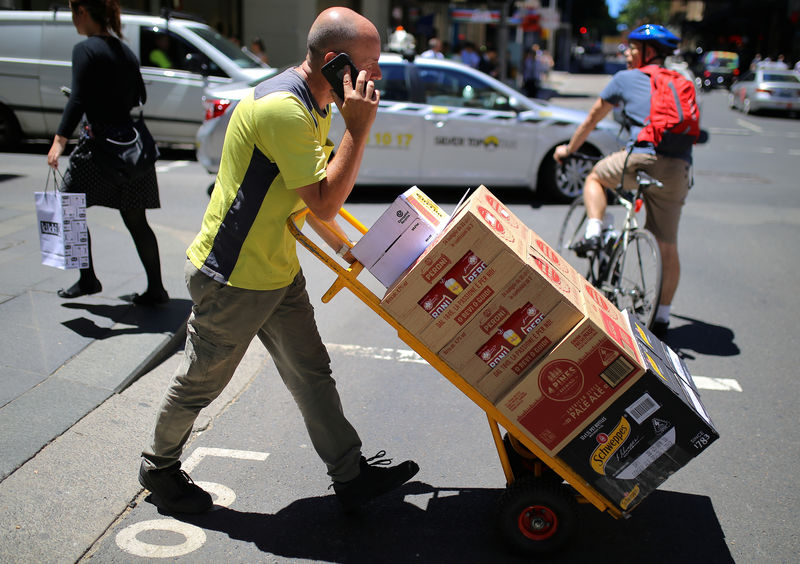(Updates with economist comment, background)
By Swati Pandey
SYDNEY, June 1 (Reuters) - Australia's industrial relations umpire has raised the national minimum wage by 3.5 percent from July 1, it said on Friday, an increase almost double the current industry rate but half what unions had lobbied for.
The A$24.30 per week hike will be welcomed by central bank policymakers who want to see a pick up in wage growth and inflation before they normalise interest rates from the current record low 1.50 percent. move affects about 2.3 million employees, or 20 percent of Australia's workforce, and was opposed by business groups which argued that higher pay awards would kill jobs.
The Fair Work Commission, Australia's labour regulator, said Reserve Bank of Australia (RBA) research had convinced the commission that "modest and regular minimum wage increases" did not reduce employment levels.
While Friday's announcement will help workers on low incomes and support anaemic consumption growth, it was unlikely to boost average wage growth in the country, economists said.
"Wage growth has bottomed at 2 percent, but outside of sectors like construction and infrastructure there is scant evidence of accelerating wage growth," said Matt Sherwood, head of investment strategy at Perpetual Investments.
"While the minimum wage influences around 20 percent of the labour market directly, I seriously doubt this development will provide any material lift to Australian average wage growth in the year ahead."
"Core inflation will remain around 2 percent which means the RBA will remain on hold for 2018 and the vast bulk of 2019," Sherwood added.
The RBA last cut rates in August 2016, making the current stretch of stable rates the longest on record.
RBA Governor Philip Lowe recently said average annual wages needed to rise by 3.5 percent to achieve average inflation of 2.5 percent, the mid-point of the bank's target. last time wages grew as fast as 3.5 percent was in the third quarter of 2012. RBA has been loath to heed its own wage hike recommendation, with employees at its note-printing subsidiary calling a strike last week to demand a 3.5 percent pay rise, rather than the 2 percent the central bank was offering. leaders were not immediately available to comment on whether the matter has been resolved. The RBA has said it will not comment on the issue.
